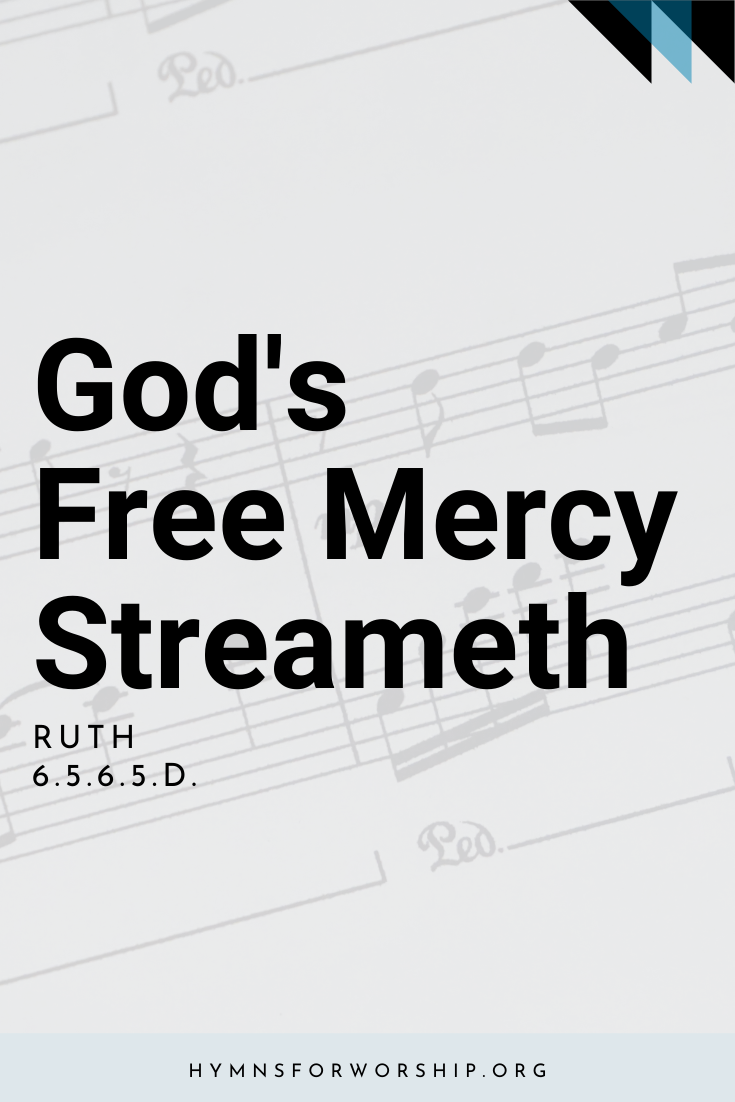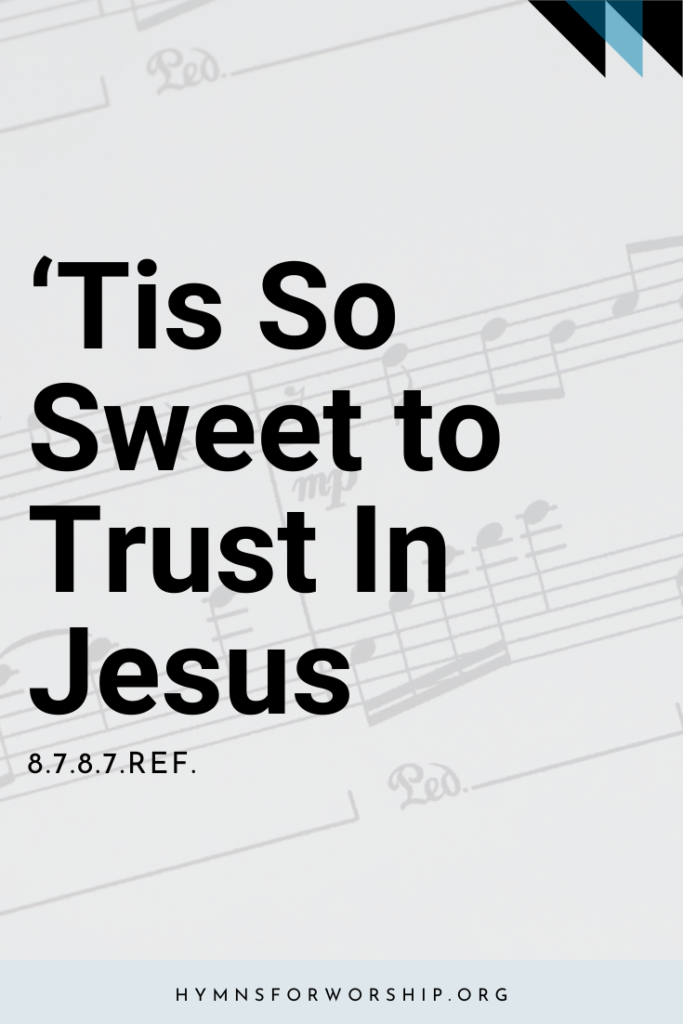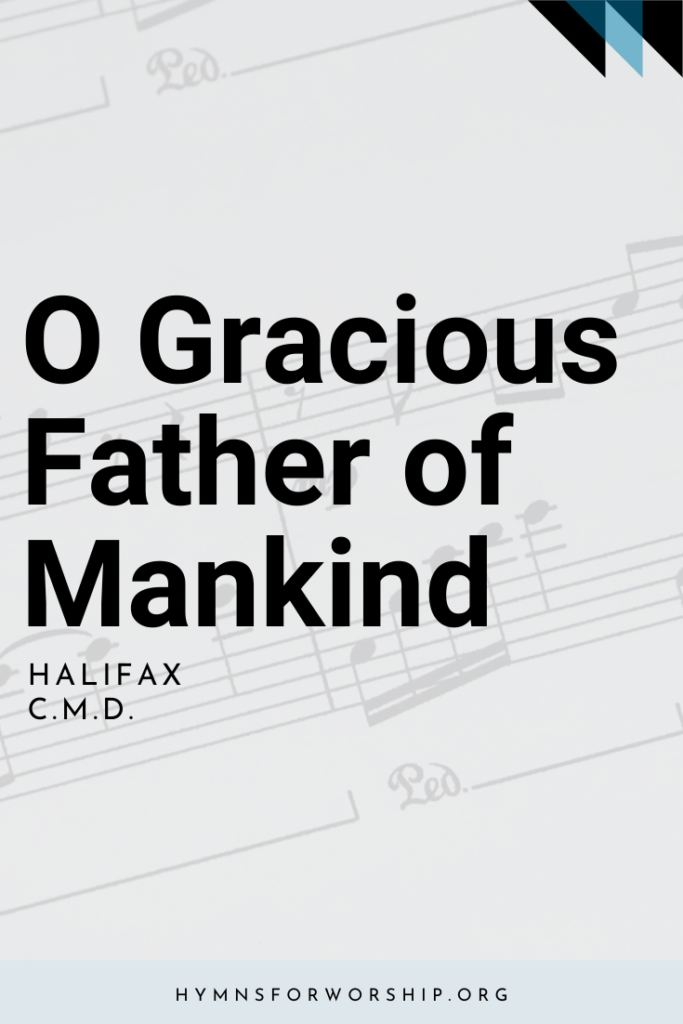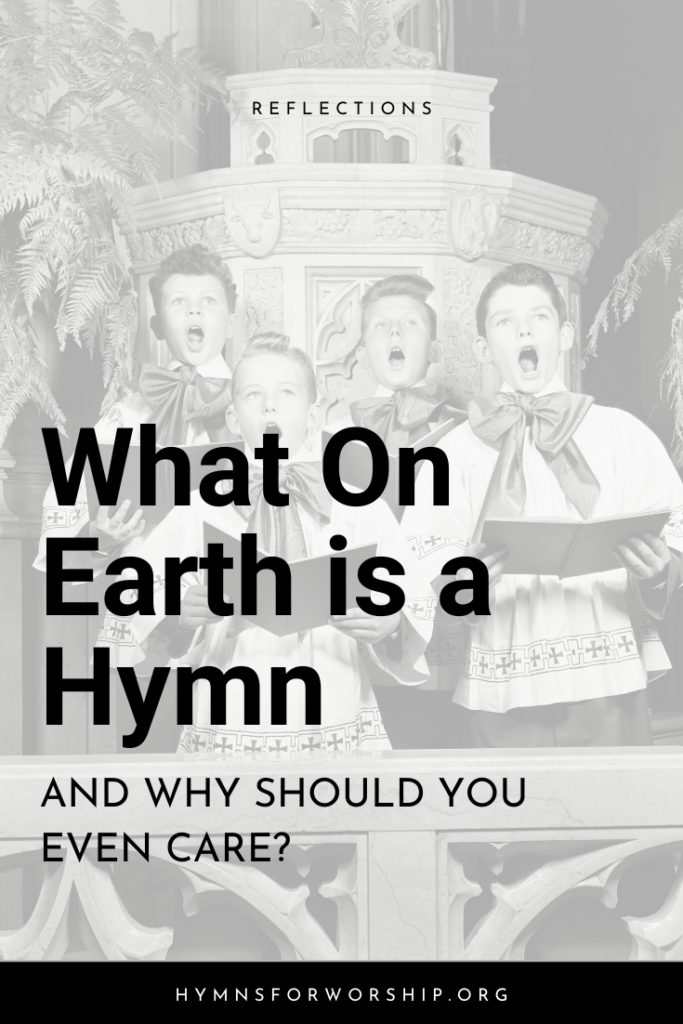GOD THE FATHER >> GRACE & MERCY OF GOD
SDAH 110
God’s free mercy streameth over all the world,
And His banner gleameth, By His church unfuried;
Broad and deep and glorious, As the heaven above,
Shines in might victorious His eternal love.
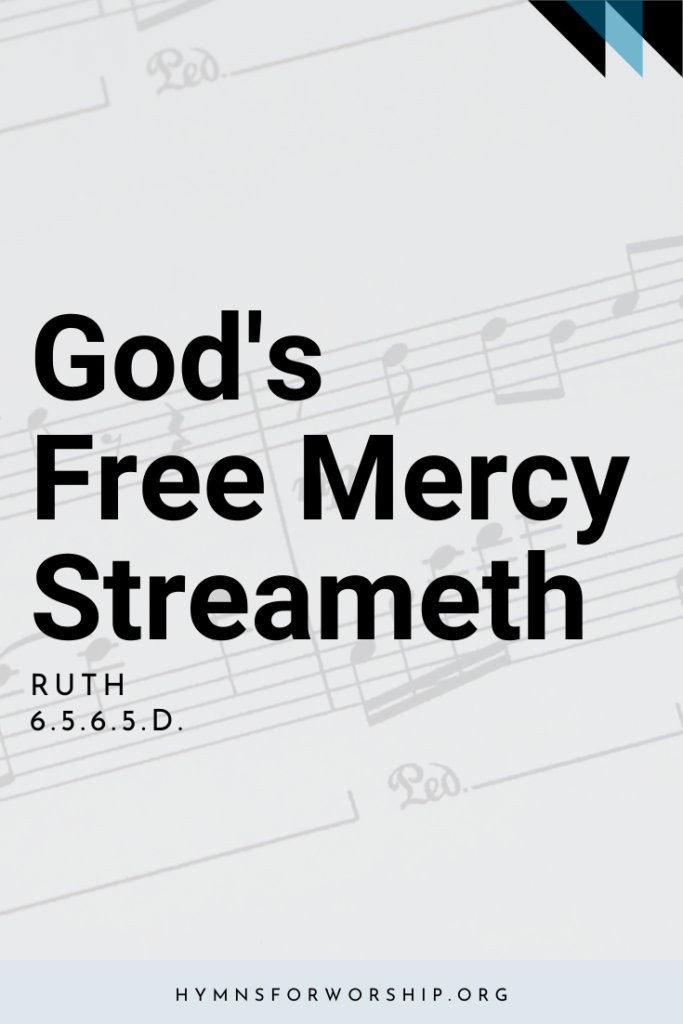
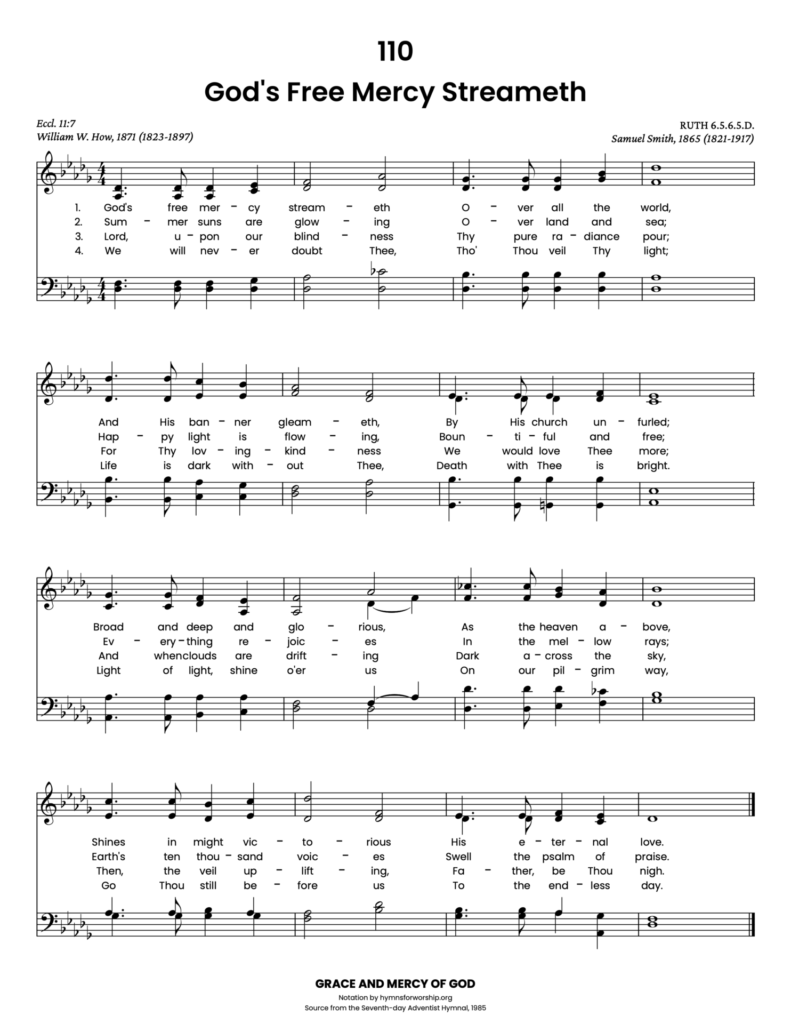
Get the hymn sheet in other keys here
For Worship Leaders
Make each hymn more meaningful with these helpful tools: Short, ready-to-use hymn introductions for church bulletins, multiple ways to introduce a hymn based on your worship theme and in-depth history and insights to enrich your song service.
Hymn Spotlight: God’s Free Mercy Streameth
This gentle hymn by Bishop William Walsham How (1823–1897) was originally titled “Summer” and reflects on the sweetness of light, echoing Ecclesiastes 11:7: “Truly the light is sweet, and a pleasant thing it is for the eyes to behold the sun.” How draws spiritual lessons from the natural world, using the brightness of summer as a picture of God’s constant mercy and love. The tune RUTH, composed in 1865 by Windsor organist Samuel Smith, pairs beautifully with the hymn’s warmth and flow.
As we sing, may we be reminded of God’s light that never fails and His mercy that flows, even when our path seems dim.


Text
1
God’s free mercy streameth over all the world,
And His banner gleameth, By His church unfuried;
Broad and deep and glorious, As the heaven above,
Shines in might victorious His eternal love.
2
Summer suns are glowing over land and sea;
Happy light is flowing, Bountiful and free;
Everything rejoices in the mellow rays;
Earth’s ten thousand voices swell the psalm of praise.
3
Lord, upon our blindness thy pure radiance pour;
For Thy loving kindness we would love Thee more;
And when clouds are drifting dark across the sky,
Then, the veil uplifting, father, be Thou nigh.
4
We will never doubt Thee, tho’ veil Thy light;
Life is dark without Thee, death with Thee is bright.
Light of light, shine o’er us on our pilgrim way,
Go Thou still before us to the endless day.

Hymn Info
Biblical Reference
(a) 1 Pet 1:3 (b) Eccl 11:7 (c) Ps 63:3 (d) Prov 4:18
Author
William W. How (1823-1897)
Year Published
1871
Hymn Tune
RUTH
Metrical Number
6.5.6.5.D.
Composer
Samuel Smith (1821-1917)
Year Composed
1865
Theme
GRACE & MERCY OF GOD

